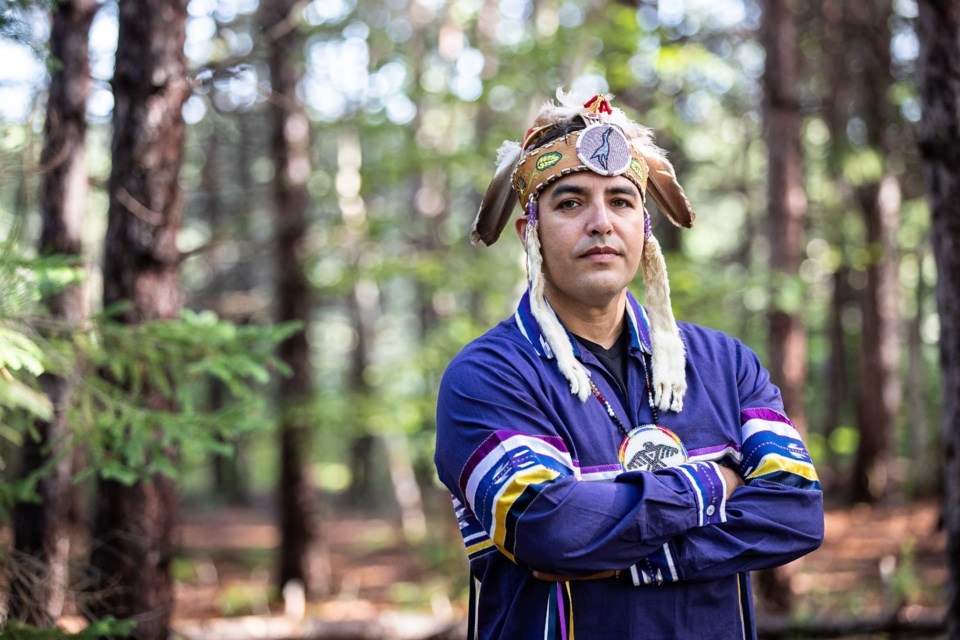ANISHINABEK NATION– Set to close on July 13, the Federal Indian Day School Class Action Settlement will no longer give compensation to Survivors of the residential school system.
With a few short weeks away, Survivors and their families of the Anishinabek Nation are in distress feeling excluded or outwardly ignored as they have continuously requested an extension so their claims can be validated by the justice system, and they can receive their long-overdue settlement.
In a statement, the Anishinabek Nation and the Federation of Sovereign Indigenous Nations are calling upon the federal government to review the class action settlement and in-state Call 29 from the Truth and Reconciliation Commission.
“Canada’s approach to the implementation of the claim regime should be grounded in the Truth and Reconciliation Commission’s Calls to Action. Today, we ask Canada to consider Call #29, to work collaboratively with Day School Survivors and their families who were not included in the Indian Residential Schools Settlement Agreement,” said Anishinabek Nation Grand Council Chief Reg Niganobe.
To demonstrate the true urgency and requirement for immediate action for all Day School Survivors and their families, the Anishinabek Nation and the Federation of Sovereign Indigenous Nations are asking people to sign their Petition of Demand, stating that these “issues and concerns with this Settlement extend beyond tribal borders and impact Indigenous peoples.”
Part of the reason why Indigenous peoples are feeling aligned is due to the lack of services during the global COVID-19 pandemic. With many Indigenous communities lacking modern telecommunication technology, access to the website to submit their claims was out of reach.
For those Survivors who have submitted their claims, Anishinabek Nation has received several reports that people were receiving lower levels of compensation than deserved.
A contributing factor to these reports is due to the way the class action settlement works. Survivors have to disclose proof of their attendance with a details narrative that outlines the trauma they had to endure while being forced to attend. Survivors continue to be re-traumatized as they and their families are forced to relive the trauma as they write their narratives for review.
Furthermore, federally-funded Schools Day schools have been left off the eligibility list entirely.
Consequently, this anxiety with the upcoming settlement deadline isn’t felt by the First Nations communities in Ontario, but across this country.
“We have schools that have been left off the eligible school list here in Saskatchewan. This is the same for other provinces and territories. This leaves Survivors who have endured the pain and hardships from these schools with no justice or closure to begin their healing journey. On top of the many reasons stated in this letter and the petition, we call upon the parties of this class action, Canada, and Gowling WLG to extend the deadline and amend the eligible school lists to ensure it encompasses all of the schools so that no Survivors are left out of the claims process. Considering reconciliation and the implementation of the Truth and Reconciliation Commission Calls to Action, we need to do our best for Survivors and to support them through these processes and make sure no one is being left out," said Federation of Sovereign Indigenous Nations 3rd Vice Chief Alyson Bear.
Two hundred thousand Indigenous children attended Indian Day Schools. Leaving Day School Survivors out of the settlement neglects these victims’ stories and the pathway to truth and reconciliation.
“Day School Survivors and their families have endured enough trauma already. They do not need to face these barriers while on their difficult and emotional healing journey. The FSIN will continue to stand up with Survivors and their families so they can start receiving the justice they deserve,” said Federation of Sovereign Indigenous Nations Chief Bobby Cameron.
Although Class Action Settlements aren’t typically amended once the judge makes a ruling; however, under these circumstances, the Anishinabek Nation and the Federation of Sovereign Indigenous Nations ask for more time to ensure that compensation reaches those who are entitled to the settlement.
After the discovery of unmarked graves of children who unjustly lost their lives, faith within the justice system is entirely lost.
“The testimonies of Survivors and the uncovering of children’s graves at schools have highlighted what happens when the status quo is maintained, stated Niganobe.
Moreover, it allows institutions to have the same authority today as those from the past who historically allowed the creation and facilitation of these institutions of assimilation.
“We have walked with Survivors and their families, we listen and hear their cries, we sit and see their tears, and we will be the ones to manage the repercussions of this gross injustice for generations to come in Indigenous communities,” said Niganobe and Bear in their united statement. “True reconciliation requires change, and we are calling upon Canada and the Class Council to make these unprecedented, but imperative changes to the Settlement.”
